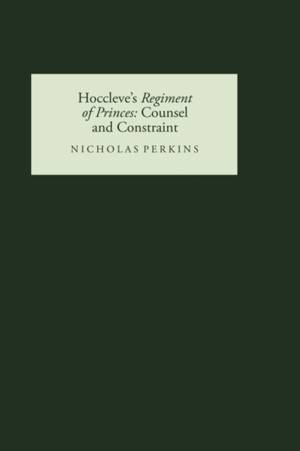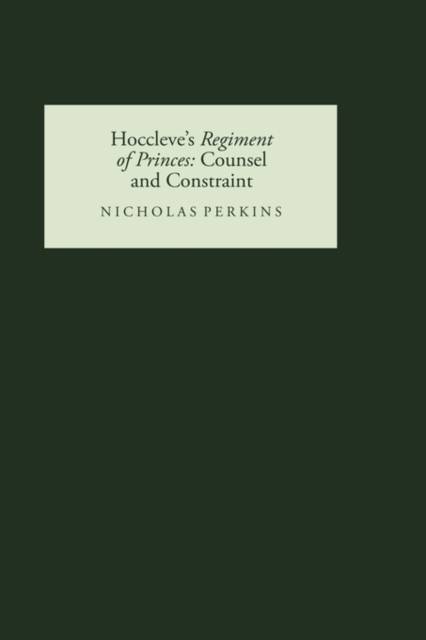
Bedankt voor het vertrouwen het afgelopen jaar! Om jou te bedanken bieden we GRATIS verzending (in België) aan op alles gedurende de hele maand januari.
- Afhalen na 1 uur in een winkel met voorraad
- In januari gratis thuislevering in België
- Ruim aanbod met 7 miljoen producten
Bedankt voor het vertrouwen het afgelopen jaar! Om jou te bedanken bieden we GRATIS verzending (in België) aan op alles gedurende de hele maand januari.
- Afhalen na 1 uur in een winkel met voorraad
- In januari gratis thuislevering in België
- Ruim aanbod met 7 miljoen producten
Zoeken
€ 177,45
+ 354 punten
Omschrijving
This is the first book-length study of Hoccleve's Regiment of Princes. It is an excellent one; critically alert and sensitive to the potential of a variety of fruitful approaches to Hoccleve's major poem.... helpfully contextualises Hoccleve's poem in a far more comprehensive way than previously... combines critical and scholarly acumen to give us a book that will be the necessary departure for any future study of 'The Regiment of Princes'. A.S.G. EDWARDS, NOTES AND QUERIES Thomas Hoccleve's politics and poetics have often been viewed as conventional, servile and naive. In the first book-length study of Hoccleve's major poem, Nicholas Perkins argues that 'The Regiment of Princes' is in fact deeply engaged in the political and literary currents of the early fifteenth century, combining the elaborate deference of a petition, the resistance of a complaint and the monitory authority of a 'speculum principis' in its address to the future Henry V. Perkins sets the 'Regiment's' production within a late-medieval economy of advisory speech, reassesses the poem's relationship to the Latin treatises on which it draws, and examines its hermeneutics of royal counsel, which challenges the prince to interpret and act on the advice he receives. Using evidence from the 'Regiment's' many manuscripts, he then reveals how Hoccleve's poem was refashioned for new audiences beyond the Lancastrian court in the fifteenth and early sixteenth centuries. NICHOLAS PERKINS is a fellow of Girton College, Cambridge.
Specificaties
Betrokkenen
- Auteur(s):
- Uitgeverij:
Inhoud
- Aantal bladzijden:
- 249
- Taal:
- Engels
Eigenschappen
- Productcode (EAN):
- 9780859916318
- Verschijningsdatum:
- 1/09/2001
- Uitvoering:
- Hardcover
- Formaat:
- Genaaid
- Afmetingen:
- 161 mm x 240 mm
- Gewicht:
- 526 g

Alleen bij Standaard Boekhandel
+ 354 punten op je klantenkaart van Standaard Boekhandel
Beoordelingen
We publiceren alleen reviews die voldoen aan de voorwaarden voor reviews. Bekijk onze voorwaarden voor reviews.









